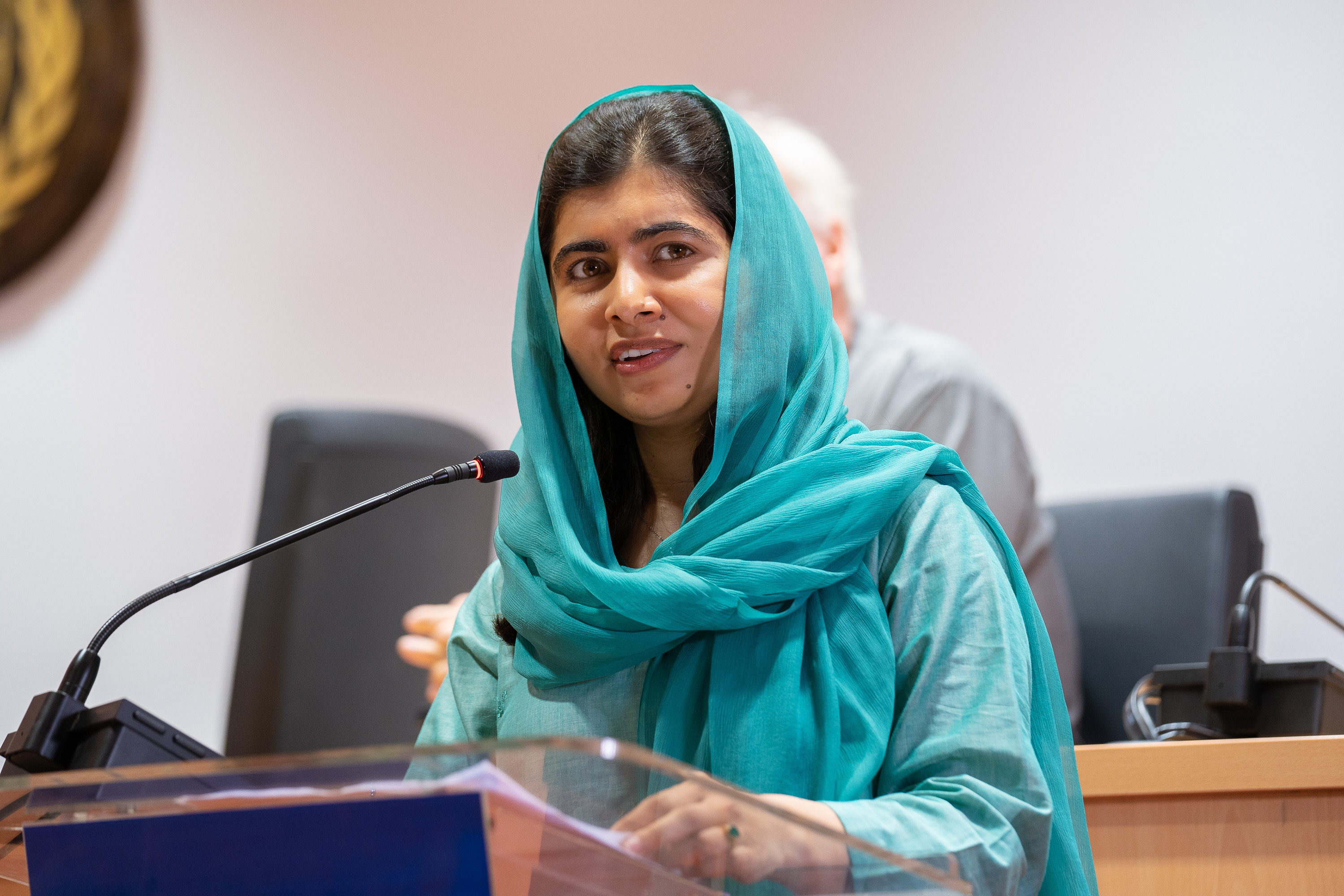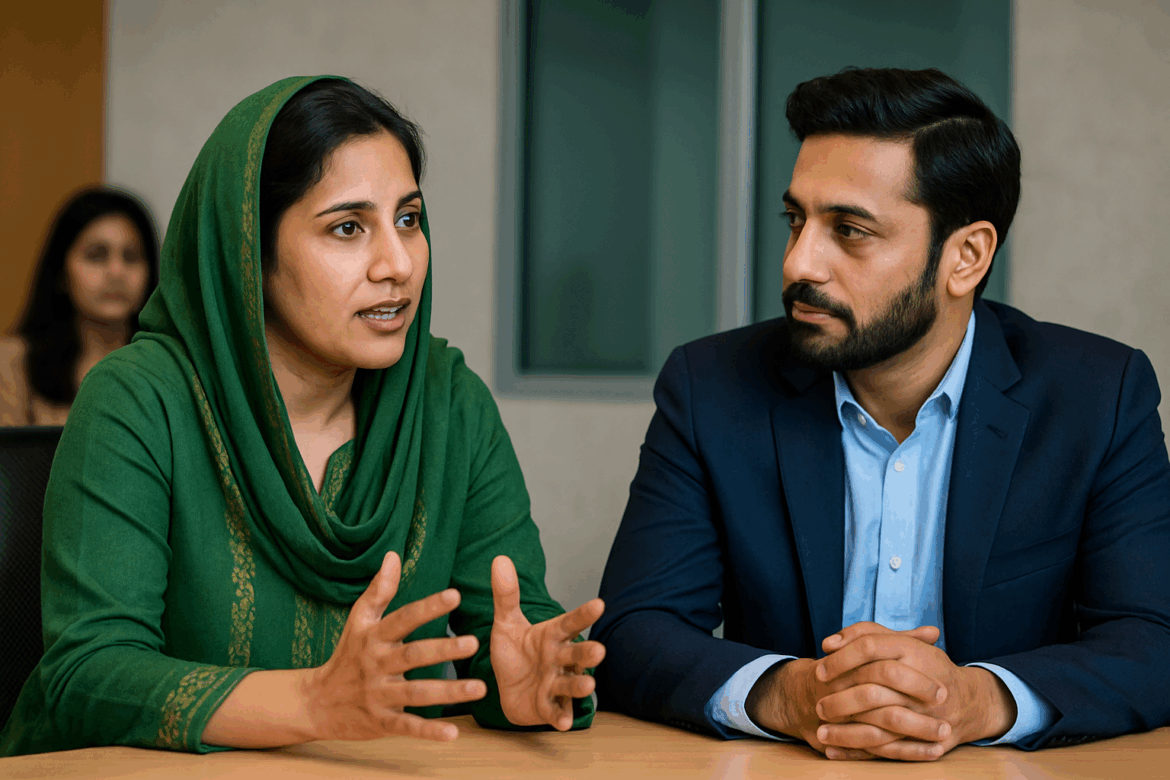For generations, leadership in Pakistan has been defined by hierarchy, authority, and dominance where the loudest voice in the room is often the one that wins. But quietly and powerfully, Pakistani women have been rewriting this outdated script. Amidst countless barriers, they have emerged as a new wave of leaders who are reshaping workplaces, industries, and communities not through force, but through empathy.
Their leadership isn’t about issuing orders or asserting control. It’s about listening, understanding, and creating spaces where every voice matters. And in a society where women constantly battle cultural expectations, systemic discrimination, and limited opportunities, their ability to lead with empathy is not just inspiring it’s revolutionary. Male allies who seek to drive real change in Pakistan’s work culture have much to learn from these women who continue to thrive despite the odds.
The Power of Empathy in Leadership
Empathy is often misunderstood as a weakness in leadership, especially in our cultural context. But in reality, it is one of the most powerful and effective leadership traits. Empathy means recognizing the challenges others face, being sensitive to their needs, and making decisions that prioritize the collective wellbeing of a team rather than the ego of one person.
Pakistani women leaders, having faced countless challenges, have developed this skill almost out of necessity. They have learned to listen because they were often silenced. They have learned to support because they received little of it themselves. They have learned to lead not by demanding respect but by earning it through trust, care, and genuine human connection.
Pakistani Women Leading by Example
Take Malala Yousafzai, who turned personal tragedy into a global movement for education. Rather than center her own story, she amplifies the voices of millions of girls who remain unheard. Her leadership is not rooted in personal glory but in collective empowerment.

Jehan Ara, one of Pakistan’s leading figures in the tech industry, has spent decades not only building businesses but also nurturing young entrepreneurs. She understands that success is not only about numbers and profits but about supporting people as they grow, stumble, and succeed.

In politics, Sherry Rehman stands as a beacon of empathetic leadership. In an arena often dominated by conflict and division, she promotes dialogue, inclusivity, and respectful engagement qualities rarely associated with political power.

Nighat Dad’s work in digital rights exemplifies empathy in activism. She fights tirelessly to protect individuals’ online freedoms and safety, particularly women who face harassment and abuse. Her leadership is rooted in the understanding of the emotional trauma that comes with digital violence.

These women show that real leadership isn’t about dominance. It’s about service.
What Male Allies in Pakistan Can Learn from Women Leaders?
Pakistani women leaders offer a distinct and powerful leadership model built on empathy, resilience, and adaptability. Male allies who wish to grow as leaders can take valuable lessons from their approach, not just to support women but to build their own leadership capabilities.
1. The Power of Active Listening
Women leaders in Pakistan have understood the art of listening deeply because they have often been unheard. Instead of rushing to offer solutions, they listen to understand the full context. Male allies can adopt this approach by becoming more present in conversations, allowing others to fully express themselves before responding. Active listening helps leaders make better decisions that reflect the needs and realities of their teams.
2. Leading with Emotional Intelligence
Pakistani women leaders often balance multiple roles with grace, developing high emotional intelligence. They are attuned to the emotional dynamics within their teams and approach conflicts with sensitivity and understanding. Male leaders can learn to read the emotional undercurrents in their teams, responding not with authority but with empathy, which helps build trust and loyalty.
3. Building Consensus, Not Command
Rather than issuing top-down directives, many Pakistani women leaders lead by building consensus. They create inclusive environments where every voice matters, fostering a culture of collaboration. Male allies can learn that true leadership involves guiding diverse groups toward shared goals by valuing each person’s input.
4. Resilience in the Face of Adversity
Facing systemic barriers has made Pakistani women leaders highly resilient. They adapt to challenges without losing focus on their goals. Male allies can draw inspiration from this resilience, learning to combat obstacles with patience, flexibility, and unwavering determination.
5. Servant Leadership as Strength
Pakistani women often lead with a mindset of service prioritizing the growth and wellbeing of their teams over personal gain. This form of leadership creates environments where people feel supported and motivated. Male allies can practice servant leadership by focusing on the success and development of those they lead, which in turn strengthens the entire organization.
6. Balancing Ambition with Compassion
Ambition does not mean sacrificing compassion. Pakistani women leaders demonstrate that it is possible to be driven while remaining considerate of others’ challenges and limitations. Male allies can learn that acknowledging the personal circumstances of team members does not compromise performance; it enhances it by fostering loyalty and engagement.
Small Steps, Big Shifts
Creating an empathetic leadership culture doesn’t require massive overhauls. It begins with daily actions:
- Intervene when witnessing sexist behavior.
- Publicly acknowledge women’s achievements.
- Mentor with sincerity, not out of obligation.
- Push for equal pay and fair promotion practices.
- Advocate for inclusive hiring policies.
Redefining Strength in Leadership
The old model of leadership rooted in control is outdated. Empathy, as demonstrated by Pakistani women leaders, is not a soft skill it is the foundation of resilient, innovative, and high-performing teams. When leaders lead with empathy, they don’t just drive results; they build lasting loyalty, creativity, and trust.
The blueprint is already there. Pakistani women have been leading with empathy for years, proving that leadership grounded in understanding and care is not only possible but powerful. Now, it’s time for male allies to follow their lead and help redefine what true leadership in Pakistan looks like.
